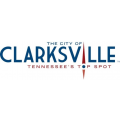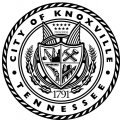There are several potential career paths available for students pursuing a nursing career in Tennessee. Aspiring nurses should understand the career trajectory of each role in order to ascertain which educational program is the best fit.
Nursing assistant
Tennessee
We've organized a comprehensive list of Tennessee nursing schools. Below you'll find information on specific nursing programs such as LPN certificates and ADN, BSN, and MSN degrees. You'll also find a profile of nursing education and careers in each major Tennessee city.
Tennessee nursing programs and careers
City-specific information
Numerous schools in the Nashville metropolitan area offer accredited nursing programs. These offerings cover a broad range of certificates and degrees. The first step in launching one’s nursing career is understanding the different nursing roles and the required educational programs for each. There are three primary nursing roles from which aspiring nurses can choose.
The metropolitan area of Kingsport, Tennessee, is home to more than 5,000 nurses. These healthcare professionals fill a number of critical frontline roles. Registered nurses (RNs) make up the largest population of nurses in Kingsport, followed by certified nursing assistants (CNAs) and licensed practical nurses (LPNs).
Johnson City, Tennessee, is home to 2,700 registered nurses (RNs), 1,120 licensed practical nurses (LPNs), and 1,560 certified nursing assistants (CNAs). Many of these healthcare professionals earned their diploma, certificate, or degree at a local college or university. The metropolitan area has several options, including East Tennessee State University (ETSU), Milligan College, and Tennessee College of Applied Technology’s Elizabethton campus.
The Jackson, Tennessee, metropolitan area is home to nearly 4,000 nursing professionals. Several of the most common roles are nurse practitioner (NP), registered nurse (RN), licensed practical nurse (LPN), and certified nursing assistant (CNA).
Clarksville, Tennessee, is home to more than 3,000 nursing professionals. The state’s healthcare workforce includes 1,540 registered nurses (RNs), 860 licensed practical nurses (LPNs), and 870 certified nursing assistants (CNAs). Each role requires a specific educational curriculum prior to licensure or certification.
A significant number of accredited colleges and universities in Memphis offer nursing programs. These programs cover a broad spectrum of nursing roles and career trajectories. It is important for aspiring nurses to consider in advance which role, and thus which educational pathway, is the right fit.
Overview of nursing positions
Several of Knoxville’s colleges and universities offer accredited nursing programs. These programs run the gamut from brief certificates to intensive bachelor’s, master’s, and doctor’s degrees. The breadth and quality of nursing education make Knoxville a great place to launch one’s nursing career.
Types of nursing roles
There are several accredited nursing schools in Chattanooga which offer a range of education options including certificate, associate’s degree, bachelor’s degree, and master’s degree. These nursing programs prepare students for several different types of nursing roles.
Nursing roles
Most master of science in nursing (MSN) degree programs are designed to prepare existing registered nurses (RNs) for specialized fields of nursing practice. Tennessee is home to at least 15 universities with MSN programs, collectively offering more than 30 such programs. Vanderbilt University is the most prolific, with a dozen MSN specializations including nursing administration, adult health nursing, family practice nursing, pediatric nursing, and critical care nursing.
For our 2024 rankings of prelicensure BSN programs, the research team at Nursing Schools Almanac compiled an extensive database of student performance on the National Council Licensure Examination for Registered Nurses (NCLEX-RN). Aspiring registered nurses in the United States must pass this examination before they may commence practice. Thus, student performance on the NCLEX-RN exam provides an excellent benchmark for comparing the relative quality of bachelor’s degree programs.












